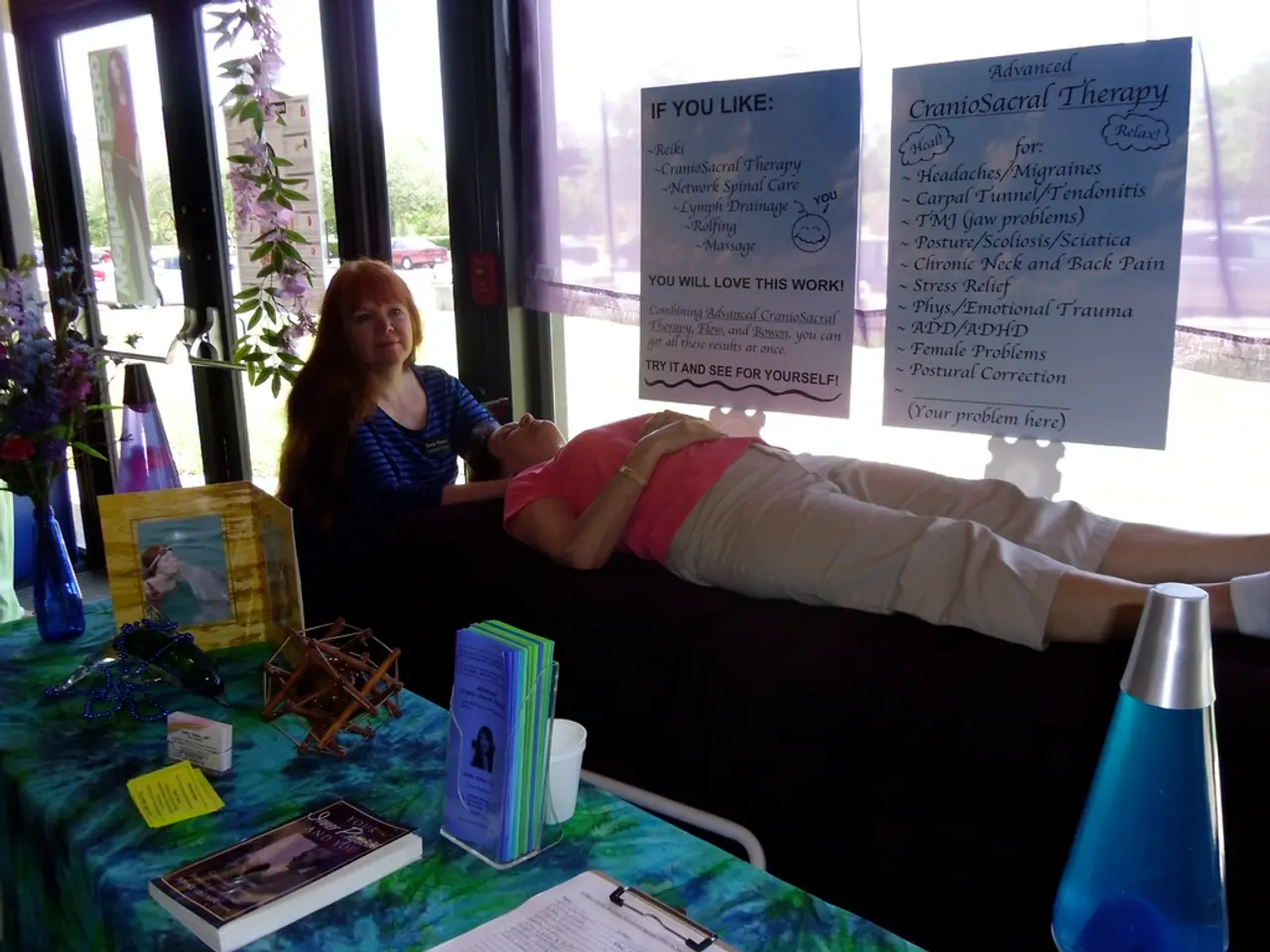Take a break, relax, and disconnect from responsibilities on National Lazy Day, a day dedicated to leisure and skipping productivity.
In today's fast-paced world, the importance of intentional rest cannot be overstated. By making deliberate choices to disconnect, slow down, and prioritize relaxation, individuals can reap significant benefits for both their mental and physical health.
Stress Reduction
Intentional rest helps lower stress hormones such as cortisol, calming the nervous system, reducing feelings of overwhelm, and improving mood [1][3][4]. Mindful breathing and slow living techniques contribute to this effect [1][4].
Improved Mental Clarity and Cognitive Function
Slowing down and allowing the brain time to process and reflect can enhance creativity, decision-making, executive function, and attention control [1].
Physical Health and Recovery
Rest supports physical health by enabling the body to recharge, regulate the nervous system, and prevent burnout or exhaustion, which is especially important during demanding physical training or busy life schedules [2].
Improved Resilience and Energy
By incorporating intentional rest, individuals gain more clarity, energy, and emotional resilience to better handle daily demands [2][5].
Mood Elevation and Focus
Brief periods of intentional rest, even as short as five minutes of silence or mindful breathing, can elevate mood and improve focus [4].
Digital Detox and Social Connection
Slowing down isn't just about disconnecting from screens but also about connecting with others over shared interests. This can build trust and make teamwork more effective [6]. Younger adults highlight social connection as a key factor more often than older generations [7].
Mental Well-being and Anxiety
Preliminary research suggests long-term stress may raise the risk of obesity by increasing overeating or interfering with habits like consistent sleep and regular movement [8]. In 2024, 70% of U.S. adults report feeling anxious about current events [9]. Economic concerns, the presidential election, and gun violence are among the top sources of anxiety for U.S. adults in 2024 [9].
Sleep and Blue Light
Sleep suffers when blue light delays melatonin release, keeping the brain too alert for rest [10]. Well-planned breaks help people return more focused and ready to take on the rest of the day [11].
The Role of Intentional Rest in Modern Life
Logging off frees up time and makes it easier to finish tasks without constant distraction [12]. Unplugging helps restore perspective and improve self-image [13]. Quiet creative time, like informal brainstorming or mentoring, adds value without draining mental reserves [14].
Seeking Professional Help
Only 24% of adults say they have spoken with a mental health professional in the past year [15]. If you're feeling overwhelmed, it's important to remember that seeking help is a sign of strength, not weakness.
Case Study: Jennifer Allen
Jennifer Allen, a retired chef turned traveler, cookbook author, and nationally syndicated journalist, is a co-founder of Food Drink Life. Her journey from a high-stress career to a more balanced lifestyle is a testament to the power of intentional rest.
In conclusion, intentional rest is not merely the absence of activity but a vital, active process to promote well-being, improve mental and physical performance, and support long-term health [2][3]. By making conscious choices to disconnect, slow down, and prioritize relaxation, we can lead healthier, happier lives.
- Intentional rest, such as practicing mindful breathing or taking brief periods of silence, can elevate mood and improve focus, contributing to a healthier lifestyle.
- A balanced lifestyle, as demonstrated by Jennifer Allen, a former chef turned traveler and author, showcases the transformative power of intentional rest in managing stress and achieving overall well-being.
- Incorporating fitness and exercise, along with intentional rest, can support better mood and cognitive function, enhancing mental health and performance.
- By disconnecting from digital devices and connecting with others, individuals can build trust, make teamwork more effective, and foster a sense of social connection, contributing to overall health-and-wellness.
- Preliminary research suggests that long-term stress can raise the risk of obesity by interfering with healthy habits like consistent sleep and regular movement, underscoring the importance of intentional rest in maintaining a healthy mental and physical state.




